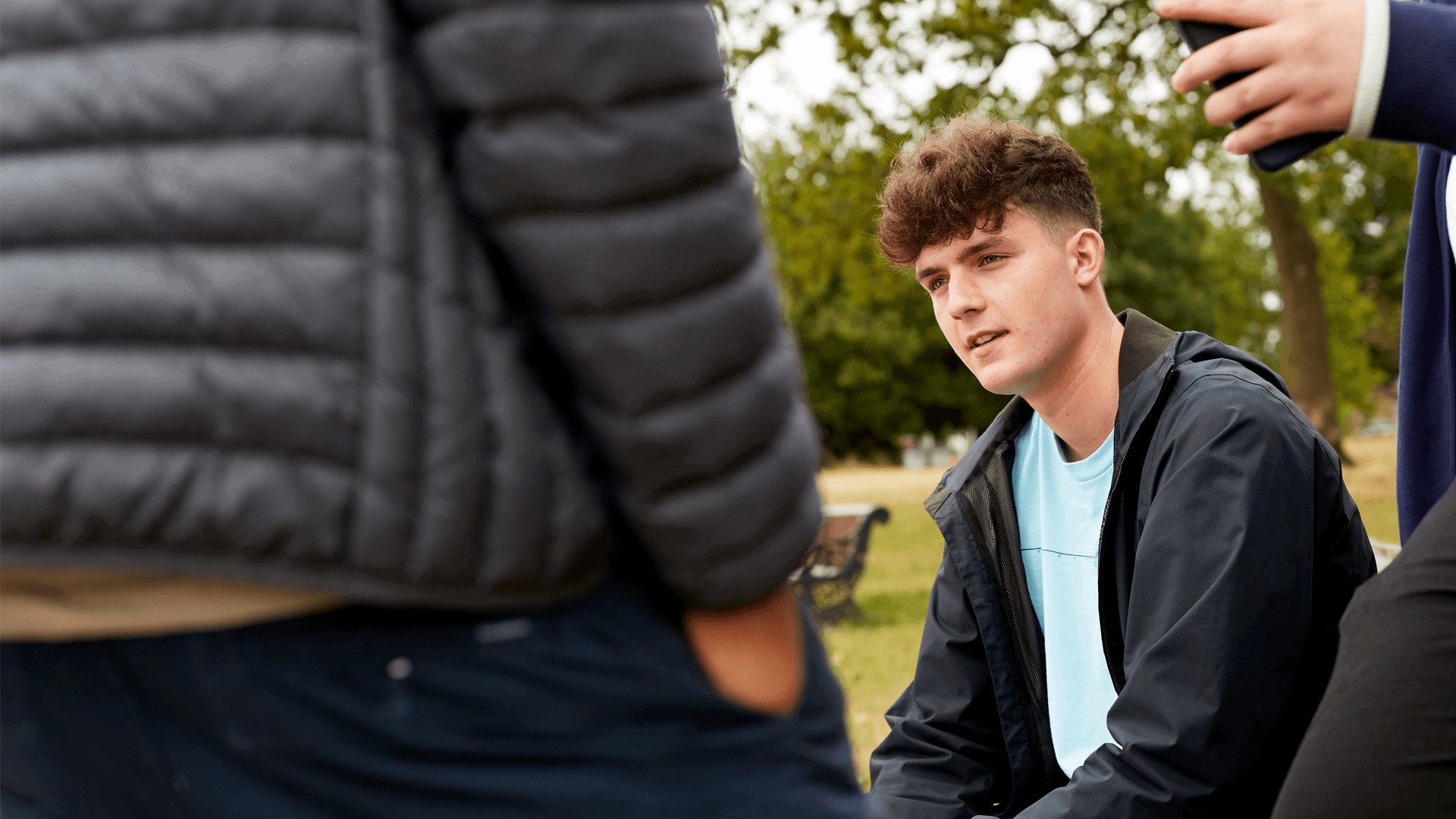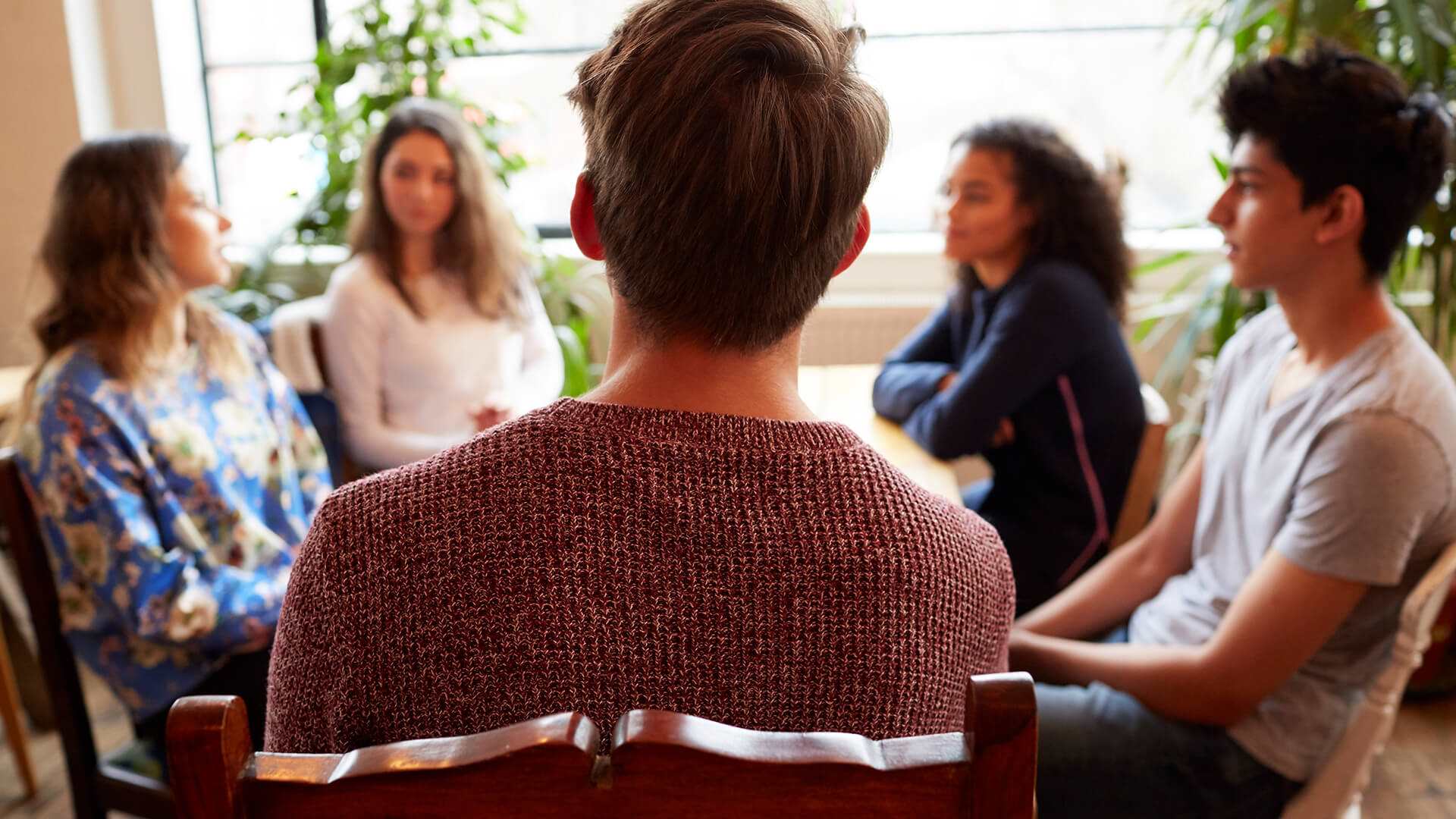What is a panic attack?

A panic attack is a sudden and intense feeling of fear and anxiety. It can happen quite suddenly and feel overwhelming or scary.
You might feel a few of these symptoms at the same time or have a different reaction. Everyone experiences panic attacks differently and your feelings are valid. During a panic attack, you might also feel like you can’t control what’s happening to your body, or feel out of touch with what’s going on around you. You might feel scared that your body is in danger or feel like you’re having a heart attack.
Although this can feel very frightening, it’s important to know that a panic attack won’t cause you any harm. Even if you don’t feel it during an attack, try to remember you are in control and the feeling will pass.
When you are having a panic attack, your body can react in different ways. You might:
- feel out of breath, start breathing really quickly or find it harder to breathe
- feel light-headed, like you might faint
- find lights a lot brighter and more intense
- experience your heart beating really fast
- sweat more than usual
- feel shaky
- have wobbly legs
- have pains in your chest
- be teary, or feel like you can’t stop crying
- feel stuck, like you can’t move
- have stomach cramps
- feel sick
Why might I have a panic attack?

A panic attack can happen at any time or place, and because it can happen quite quickly, it might feel unexpected.
Because a panic attack is an intense feeling of fear and anxiety, it often happens if you are feeling very anxious about something happening in your life, or you have experienced something difficult or stressful. This might be:

There are many reasons why you might feel anxious and have a panic attack. Everyone has different experiences and that’s okay. Sometimes, it might feel like there is no clear reason why you are having a panic attack.
What’s important is to try and understand what you might be feeling anxious or stressed about, and what types of situations or places can cause you to have panic attacks.
By knowing your triggers, you can start to think about what you can do in those situations to cope, or talk to someone about how you can deal with those feelings in that situation or place. Sometimes, we might find it easier to avoid a situation or place that makes us anxious. It’s very understandable that we would want to do this, but in the long term, avoiding situations can make the anxiety feel bigger. The goal is not to find a way to always avoid situations that make us anxious, but to learn to cope with how we are feeling in those situations.
The first step to doing this is to talk to someone you trust, like a friend, family member, teacher or GP. They can help you understand what you are experiencing and help you find the support you need.
I get a pounding heart and my breathing becomes rapid like I can’t get any air in - it feels stuck in the back of my throat.
What to do if you're having a panic attack
During a panic attack, you may feel like you are losing control, but there are things you can do to feel back in control, or feel ‘grounded’ again.
Focus on breathing in slowly, then breathing out slowly. It can be helpful to count when you’re breathing to focus your mind. You can start small at first, like counting to three as you breathe in and counting to three as you breathe out. When you begin to calm down, you can increase how long you hold each breath to five seconds or seven seconds.
There are lots of different breathing techniques that you can try. You can use apps like Headspace and Calm to practise breathing exercises, or have a look online and see what works best for you.
If a situation is making you feel panicked, try and find a space where you can take a moment to breathe and calm your thoughts. If you can’t physically go to a safe space, try visualising yourself somewhere where you feel calm, like on a favourite holiday.
When you are having a panic attack, you can feel out of touch with things around you. One way you can feel back in touch with your surroundings is by picking out five things you can see, hear, taste, touch, or smell. This is called a grounding exercise. You can pick a couple for each sense, or focus on one sense, like finding five things that you can see. This can help you feel connected with your surroundings and in control.

I struggle with panic attacks. Before they begin, I usually feel like there are too many voices and they’re all trying to talk at once and it gets messy. When I’m having a panic attack, I cry and I become really quiet. I struggle with talking about my feelings. Usually, I just write them down and hideaway.
After you've had a panic attack
Once you feel your breath returning to normal, you start to feel more in control of your body and your thoughts start to calm down, you might feel drained and tired from the panic attack. It can be a good idea to take some time out to look after yourself and rest if you are able to. If you are not sure what to do to relax, here are some things that might help:
- Breathing exercises – a simple breathing exercise can have a calming effect and help you to relax
- Use a self-soothe box. A self-soothe box contains things that make you feel relaxed. You can put some of your favourite things in there to focus your mind.
- Listen to some of your favourite music or watch your favourite TV show. This can help you switch off from your anxious thoughts and help you to calm down.
- Drinking some water can help if you were breathing quickly, felt out of breath or were crying a lot during your panic attack, as your throat might feel dry or you may feel dehydrated.
Everyone has a different way of looking after themselves, so find something that works for you. For more tips and advice on how to look after yourself, visit our taking time out page.
How to cope with panic attacks

When you have had a panic attack, you might worry about if - or when - you are next going to have one. This can make everyday tasks like going to school, leaving the house or meeting up with friends much more difficult. But remember, you are not alone and there is support available to help you get through this. If you are worried about when you are next going to have a panic attack, here are some things that can help you cope.
Speak to someone you trust. If you are feeling anxious or worried that you might have a panic attack, talk to friends or family. They can help you take your mind off what is making you feel panicked and support you to find the help you need. If you are struggling to say how you are feeling, you can always write your thoughts down or put them in notes on your phone if you are planning to speak to a teacher or your GP.
If you are worried about having a panic attack at school, college, or university, speak to a teacher or a member of staff. They can work with you to help you with things like finding a safe space to take some time out if you are feeling anxious or panicked.
If you feel like you’re struggling to cope with everyday tasks, speak to your GP. They can listen to how you are feeling and suggest different types of treatments like therapy or counselling to help you tackle your panic attacks.
Panic disorder
If you are having panic attacks often, on a regular basis, and you are not sure what is causing them, this could be a sign of a panic disorder. If you are feeling anxious and panicked regularly, speak to your GP. They can check in with you to see how you are feeling and find support that works for you.
How to help someone who is having a panic attack
-
Stay with the person
If you can, stay with the person during their panic attack. Just by you being there, you can help them to calm down and remind them that help is available. It is okay if you are finding it overwhelming. You can find another friend, family member or teacher they trust to support your friend and you.
-
Talk to them and encourage them
You can chat to the person about how they are feeling or anything that they like, such as favourite Netflix shows or their hobbies. This can distract them from their anxious thoughts, helping them to feel calm and to slow down their breathing. They might find it difficult to talk and might want to focus on their breath - that’s okay and it’s important to respect their boundaries and how they are feeling.
-
Check in with your friend
Even though your friend may no longer be panicking, they can still feel anxious or on edge afterwards. You can check in with them to see how they are feeling. This will remind them that they are not alone and you are there for them.
Talk about how you can support them
If your friend feels comfortable to, you can suggest talking about how you can support them in the future. This can be things like helping them find a safe space or finding breathing exercises that can help in the moment. This will help them feel better about coping with panic attacks.
Get help now
If you need some more support, here are some services that can really help you.
-
No Panic
Supports people struggling with panic attacks, phobias, obsessive compulsive disorder (OCD) and other anxiety-related issues - and provides support and information for their carers.
Offers a specialist youth helpline for people aged 13-20. The opening hours are 3pm - 6pm, Monday - Friday; 6pm - 8pm, Thursdays and Saturdays.
Call 01952 680835 for a recorded breathing exercise to help you through a panic attack (available 24/7).
Information about call costs here.
- Opening times:
- 10am - 10pm, 365 days a year
-
Anxiety UK
Provides information, support and advice for anyone struggling with anxiety.
- Opening times:
- 9.30am-5.30pm, Monday-Friday
-
Childline
If you’re under 19 you can confidentially call, chat online or email about any problem big or small.
Sign up for a free Childline locker (real name or email address not needed) to use their free 1-2-1 counsellor chat and email support service.
Can provide a BSL interpreter if you are deaf or hearing-impaired.
Hosts online message boards where you can share your experiences, have fun and get support from other young people in similar situations.
- Opening times:
- 24/7
-
The Mix
Offers support to anyone under 25 about anything that’s troubling them.
Email support available via their online contact form.
Free 1-2-1 webchat service available.
Free short-term counselling service available.
- Opening times:
- 3pm - 12am, seven days a week
More tips and advice
More tips, advice and real stories on coping with anxiety and panic attacks.




